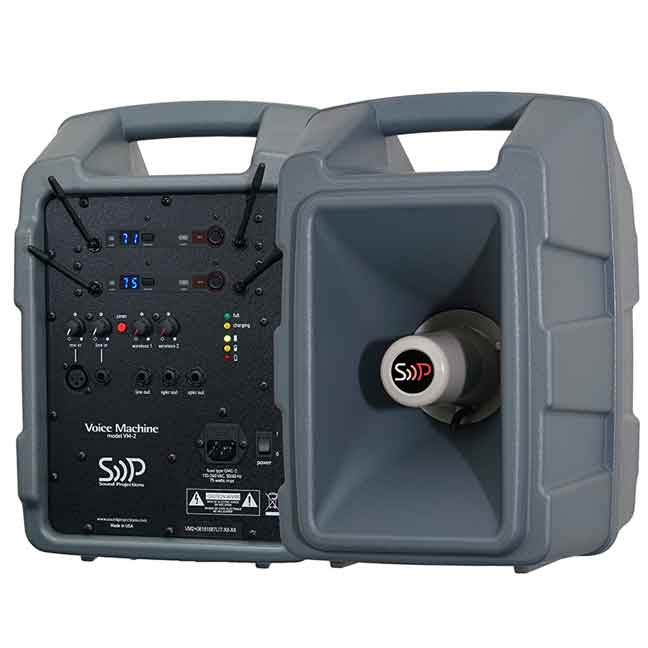July / August 2019 Newsletter
What the Heck is--
--a Grombal?
In this issue’s “What the Heck Is It?” video Ward explains… The Grombal: What it is, why it’s cool, and why you need some (in under one and a half minutes)!

Backstage
with Carleen Widhalm
If you’ve been into Boomer Music in the last eighteen years, you’ve likely been helped at least once by our store General Manager, Carleen Widhalm. Ward Durrett sat down with her for this installment of Backstage.
Ward – Tell us your basic information (name, where you grew up, etc).
Carleen – I’m Carleen Widhalm and I’ve been with Boomer Music Company since 2001. (Ed. note: She’s by far the longest tenured employee!). I was born in Torrence, CA but grew up in Rist Canyon. I attended Stove Prairie Elementary, CLP Jr. High, and Poudre High School.
WD – What is your main instrument and what groups do you perform with?
CW – I’m a vocalist. I received my vocal performance degree at CSU. I’ve performed in operas and musical theatre around town, but my favorite musical style is acappella. I’ve been a member of a four person acappella group, Curious Gage, for the last 12 years or so. The group has been around for about 15 years.
WD – That’s a great name for a group!
CW – I’ll tell you sometime when we’re not recording how they got that name. (Ed. note: Carleen may share a version of this story in person if you ask nice and are lucky)
WD – What draws you so strongly to acappella?
CW – You just meet the nicest people in the acappella community.
WD – What is your favorite style of music?
CW – Any tune that is singable.
WD – If you have time for them, what are your hobbies?
CW – Crocheting. I’m also beginning to learn how to sew. Basically anything crafty.
WD – What is the nicest compliment you’ve received?
CW – That’s such a hard one. You remember all the stressful situations and the compliments don’t stick out as much. Though I did have a lady this morning I was helping with a rental reservation and she told me how helpful and pleasant I was.
WD – What music always puts you in a good mood?
CW – The song “When Can I See You Again” by Owl City. It was the song in the closing credits for “Wreck it Ralph” but it was also used in the Paint the Night Parade at Disneyland when our family went for the first time. They don’t run it anymore, but it was the most incredible night parade. We dance to it once in a while even now.
WD – i Phone or Android?
CW – i Phone. I’ve had both and we currently have i Phones. I always want the same phone as Nic, so when I don’t know how to work my phone he can help me out! But i Phone seems to be a little more user friendly for me.
Thank you so much to Carleen for sitting down with us for Backstage. Be sure to say hi to her the next time you stop in to the store!
Care and Feeding of your Trumpet
Care and Feeding of your… Trumpet! Or “Why you should always use a mouthpiece puller to pull a stuck mouthpiece”. Correctly using the proper tool to pull a stuck mouthpiece is fast and easy and will assure that no unnecessary damage is inflicted upon your valuable instrument. In this video Drew demonstrates how easy it is to pull a stuck mouthpiece correctly and how disastrous the outcome can be when things go wrong.

New Product!
Voice Machine Portable PA System
50 watts, 127dB SPL and 8-14 hours of operating time
Clear, Powerful Sound
Fill large areas with consistent, even coverage
Lightweight 15 pounds
Lithium Iron Phosphate (LFP) Battery (Rated for over 2000 charge-recharge cycles)
External antennas for over 300’ range
Built-In AC Power Supply / Charger
No clumsy external “wall wart” to lose
Best Warranty in the Industry (6 year system, 5 year battery)

News & Events
July 18 & 19
August 8-10
Colorado Bandmasters Association Convention
D’Evelyn HS, Denver CO
Mile High Showcase Drum and Bugle Corps Show @ 7 pm
Jeffco Stadium, 500 Kipling St., Lakewood CO
Evergreen Jazz Festival All Day Event
Multiple Locations, Evergreen CO
https://www.evergreenjazz.org/
Drum Corps International Championships
Lucas Oil Stadium, Indianapolis IN

Finé: Why Making Music is Like Committing a Crime
by Drew Holmes
As a fan of police procedural shows, I’ve learned the underlying components of a crime are motive, means, and opportunity. Someone has to have the reason to do something, the resources to do it, and the chance to do it. What strikes me is how this same theory can be directly applied to making music.
The simplest part of this equation is the means. In order to participate in music making (outside of choir, it can be argued, though sheet music is usually necessary) specific musical equipment is required. Whether that be in the form of an instrument, tuner, music stand, etc. there are base materials necessary to be a musician. Everyone has their favorite brands or models within these categories, but it’s safe to say that without some standard items making music is a near impossibility.
The next item in ascending order of importance is opportunity or, for the purposes of this discussion, performance. A performance is at its core the chance to showcase the hard work that the musician has put in to making this music. It is not unto itself the accomplishment, but rather the celebration of the accomplishment of having achieved musical excellence. Without these opportunities the activity of making music becomes purely self gratifying. While there are people who through personal desires or necessity engage in this kind of personal music making, it seems a bit hollow compared to what the full potential of the activity really is.
The final and most important consideration in music making is motive. Why should someone choose to devote their time and treasure to doing this? What moved them to pick up an instrument in the first place? Yes, the studies showing the long term benefits of music making are too numerous to count, but such in-the-weeds data rarely inspires a young aspiring musician. Sometimes they have been nudged by a parent to enroll in music and are just “checking off boxes” until it’s time for the next thing. Ideally they found inspiration by seeing or hearing someone they admire making music and have come to the conclusion that not only do they want to do it, but they can do it.
Regardless of why they first picked up and instrument the important consideration is that they did it at all. That’s where we as musicians are obligated to help inspire them to want to achieve at their full potential. Whether we are teaching them private lessons, instructing them in a formal classroom setting, or sitting next to them in a community ensemble, we all contribute to creating value in their personal music making experience. The way we honor those who inspired us to achieve our best is to do the same for others. Anything less would be a dereliction of duty.
Opportunities to perform can be found (or created) with a bit of planning. Means to make music can be found at your local music store. But the motive to make music, the passion needed to achieve is something we all need to take personal responsibility to create.
Who have you inspired today?